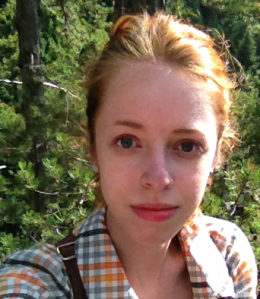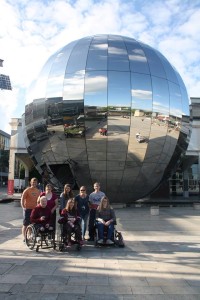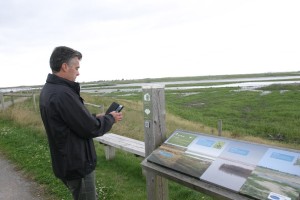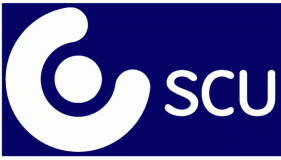MSc projects: science communication research in the real world
Clare Wilkinson
During our MSc Science Communication at UWE Bristol we focus a lot of effort on supporting students to develop their networking and employability skills whilst they study our modules. That’s one of the reasons why our graduates seem to be pretty successful in finding a job in science communication after studying with us and it also means our students get to meet a wide range of science communication practitioners and academics who are working at the ‘coalface’.
One way in which we build in an opportunity to work with an external organisation is via our Science Communication project module. Since the programme started 15 years ago we’ve had well over 150 students working on projects with our Unit and in 2009 we introduced a specific opportunity for students to conduct their projects in partnership with an external organisation. This has resulted in collaborative projects with organisations and charities including We The Curious, the Durrell Wildlife Conservation Trust, Public Health England, and the British Science Association to name just a few. As our current students complete their projects we spoke to some of the students working with external organisations this year about their experiences.

Anastasia Voronkova
Anastasia Voronkova, joined our programme from her home in Russia in September 2016. Anastasia said ‘in my project, I am analysing Durrell Wildlife Conservation Trust’s, one of the biggest international charities’, Facebook, Twitter and Instagram social media strategies and trying to understand how the audiences on these websites perceive conservation related posts.’ Digital and social media communication have been popular topics for our project students in recent years, and it’s also a space where many organisations are still finding their way, or coming up with contemporary and new approaches to reach audiences.
Anastasia was pleased to have chosen to work with an external organisation, who had been offering ‘great help and support’ alongside her UWE supervisor. Anastasia said her project had also ‘given me a unique opportunity to gain some knowledge about conservation from its active practitioners and to contribute to that field, even if only in the form of a research.’

Lindsey with some of her participants
Lindsey Cooper is a part-time student who began studying her MSc in September 2014 whilst working as an outreach and recruitment officer at Plymouth University. Lindsey has been working with We The Curious (formerly At-Bristol) on her MSc project, which offered exciting opportunities to explore not only the combination of art and science but also the relationship of science centres to underserved audiences, in her case those with physical disabilities. Lindsey said: ‘I have been evaluating a new exhibit called The Box, to see if people with physical disabilities interact and respond to the exhibit in the same way as individuals without a disability.’ The Box celebrates the synergy between art and science, and feature exhibitions and artists that occupy the space where art and science meet.
‘I have really enjoyed the experience of working with an external organisation on my project’, said Lindsey, ‘but involving more individuals has (inevitably) made the process more lengthy and complex. It took me a while to develop my research question and balance what I was interested in with what was useful to the exhibit designers at We The Curious. However, I feel like I’ve ended up with a stronger research question and results than I would have otherwise.’

Ben Sykes on site at Steart Marshes
Ben Sykes was also working whilst undertaking his MSc, though in his case this involved him developing his freelance writing career, following a change of direction after many years working at Research Councils. Ben worked with the WWT Steart Marshes which is a created wetland in Somerset. Ben said ‘this is one of the largest and most ambitious managed coastal realignment projects ever undertaken in the UK’ and the project provided him with a real opportunity to get on site at with the WWT, and to consider the issues they face in ‘communicating the science behind its creation and the ongoing research being conducted there by a consortium of universities.’
Ben described his project as a ‘huge challenge’ communicating in an outdoor, remote environment but by creating three Quick Response (QR) codes which were deployed across the reserve, Ben was able to see some real impacts from his work. Ben continued ‘By linking this to web-based science content, my project resulted in a third of Steart Visitors accessing content on the web and learning something about science. It was a super project to work on.’
Our thanks to all organisations who contribute their time and ideas to work with our students, as well as Ben, Lindsey and Anastasia for their contributions to this blog post. If you are based at an organisation who would like to work with student projects in future please contact Clare.Wilkinson@uwe.ac.uk. Find out more about our Science Communication programmes.
Posted on November 30, 2017, in MSc Science Communication, PgCert Practical Science Communication, Science Communication Unit and tagged Anastasia Voronkova, British Science Association, Clare Wilkinson, Durrell Wildlife Conservation Trust, Lindsey Cooper, MSc projects, MSc Science Communication, Public Health England, Science Communication, UWE, We The Curious, WWT Steart Marshes. Bookmark the permalink. Leave a comment.


Leave a comment
Comments 0